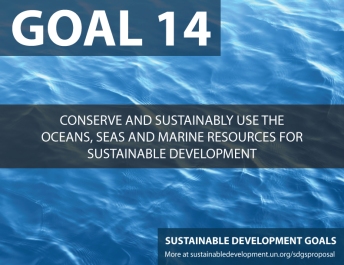
Today’s morning meeting revolved around strengthening the global health architecture to respond more effectively to health emergencies. This began with Mr. Lykketoft’s opening remark on global health crises and the importance of preparedness in the future. This is followed by the Secretary-General’s speech on the progress on some of the key recommendation made by the Panel on the Global Response on Health Crises. Three developments are highlighted – firstly, WHO’s capacity are consolidated and strengthened through the creation of the WHO Emergencies Programme, which changed the fundamental nature of the organization. Secondly, the recommendation of strengthening the UN system coordination during health crises has been taken seriously and the Deputy Secretary-General has been working to ensure there’s a senior level forum for coordination. Thirdly, the World Bank has launched the pandemic emergency financing facility, an innovative mechanism to protect the world against pandemics.
Mr. Kikwete discusses the findings of the panel, and stressed that donor countries should give serious consideration in supporting building capacities ahead of crises and effective communication and engagement should be given high priority. He urged for a reform of global health architecture to prevent worse situations in the future and outlined two recommendations: the establishment of High-level Council on Global Public Health Crises within the General Assembly, and the organization of the High-level Summit on Global Public Health Crises in 2018.
Mr. Aylward mentioned that disease can exert huge environmental, societal and economic costs and expressed the importance of preparedness and response capacity in preventing catastrophic consequences. He revealed more than 60 partners were identified to work with WHO to implement the Strategy Response Framework, with the focus on putting women in the centre and protecting them and children from Zika virus infection.
This meeting concludes with Mr. Nabarro’s remark on how global health and the sustainable development agenda are interlinked. He stated that global health is a universal attribute and is indivisible to all SDGs as ill health will undermine society’s ability to develop sustainably.
Meeting: Informal meeting of the plenary to hear a briefing on the report of the Secretary-General on strengthening the global health architecture: implementation of the recommendations of the High-level Panel on the Global Response to Health Crises (A/70/824).
Date/Time/Location: 20 June 2016, 11:00am, Conference Room 3
Speakers: Mr. Ban Ki-Moon, Secretary-General of the United Nations; Mr. Mogens Lykketoft, President of the United Nations General Assembly; Mr. Jakaya Mrisho Kikwete, Chair of the High-level Panel on the Global Response to Health Crises/President of the United Republic of Tanzania; Bruce Aylward, Assistant Directors-General of the World Health Organization; David Nabarro, Special Adviser on the 2030 Agenda for Sustainable Development
Written by: Susan Liu
Edited by: Modou Cham

 The session was organized by the co-facilitators to get comments from member states and permanent observers of the United Nations, on the Ministerial Declaration for the 2016 High-level Political Forum (HLPF) on Sustainable Development. Ambassador Gustavo, in his opening remarks, stated that this is the first to follow-up and implement the 2030Sustainable Development Agenda.
The session was organized by the co-facilitators to get comments from member states and permanent observers of the United Nations, on the Ministerial Declaration for the 2016 High-level Political Forum (HLPF) on Sustainable Development. Ambassador Gustavo, in his opening remarks, stated that this is the first to follow-up and implement the 2030Sustainable Development Agenda.

 The meeting began by Ms. Yang’s introduction of the Report of the Secretary-General on the Implementation of the objectives of the International Year of the Family and its follow-up processes. She explained the strong correlation between family policies and sustainable development, with an emphasis on the way in which poverty reduction can be facilitated as a result of formulating sustainable family policies.
The meeting began by Ms. Yang’s introduction of the Report of the Secretary-General on the Implementation of the objectives of the International Year of the Family and its follow-up processes. She explained the strong correlation between family policies and sustainable development, with an emphasis on the way in which poverty reduction can be facilitated as a result of formulating sustainable family policies.



